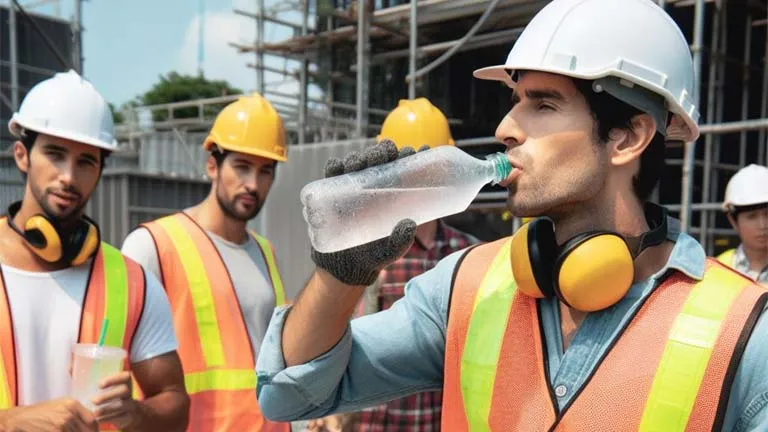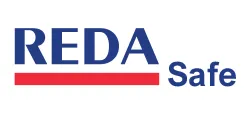7 Fundamental Hydration Facts Every Employee Needs to Understand

Introduction
With the arrival of warmer weather, discussions about staying hydrated and avoiding heat stress become increasingly important. However, many employees still have questions about dehydration and the best ways to prevent it.
Is the advice to drink eight glasses of water daily really accurate?
Can the color of your urine tell you if you're dehydrated?
Are sports drinks more effective for hydration than simple water and ice?
In this blog post, we'll explore some essential hydration tips to ensure workers remain safe and well-hydrated.
Don't Wait for Thirst to Hydrate
Feeling thirsty already indicates you're mildly dehydrated. While it's not too late to hydrate once you feel thirsty, it's better to drink water regularly before reaching that point.
Dara Huang, a kidney specialist and the founder of New York Culinary Medicine, shares that dehydration happens when our body loses water through activities like sweating, crying, and even breathing. Our kidneys manage our body's water levels and prompt us to drink more by making us thirsty when they detect a need to replenish water.
So, remember, thirst isn't the first sign you need water – it's your body's reminder to keep up with your fluid intake.
The Color of Your Urine Reveals Your Hydration Level
Darker yellow urine often signals dehydration, especially in hot environments or when you sweat a lot. Aim for urine that's clear or pale yellow and doesn't have a strong odor, as this suggests you're well-hydrated.
Paying attention to how often you urinate is also wise. Not visiting the restroom often could mean you're not drinking enough water. Conversely, if you find yourself needing to go very frequently, you might be drinking more than necessary.
Everyone's Water Needs Differ
There isn't a one-size-fits-all answer to how much water you should drink daily. While eight glasses may work for some, others may need more or less.
To figure out your ideal water intake, consider:
- Your body size, as larger individuals need more water
- How much you sweat
- Your level of physical activity
- Any health conditions you may have (like bladder infections or kidney stones)
NIOSH provides a basic guideline suggesting workers drink about a cup of water every 15 to 20 minutes during moderate activity in average conditions. However, remember that individual needs will vary.
Drinking Too Much Water Can Be Harmful
While staying hydrated is crucial, it's possible to drink too much water. This excessive intake can cause hyponatremia, a potentially severe health issue.
Hyponatremia happens when your blood's sodium levels drop too low, leading to increased water in the body and swollen cells. Often, reducing how much you drink can fix this issue, but sometimes you might need medical help.
Symptoms of hyponatremia include:
- Headaches
- Nausea and vomiting
- Confusion
- Loss of energy, tiredness, sleepiness
- Mood swings and agitation
- Muscle weakness, cramps, or spasms
- Seizures
Electrolyte Beverages: A Boost for Hydration
Electrolyte drinks aren't necessary for everyone, but they can be incredibly beneficial under certain conditions. These drinks not only taste good, making you more likely to drink more, but they also replace the vital nutrients lost during intense sweating. You might want to consider an electrolyte drink if you:
- Engage in physical activity or labor for more than an hour
- Find yourself sweating a lot
- Spend prolonged periods in hot environments
- Are experiencing illness-related vomiting or diarrhea
- Don’t enjoy the taste of water enough to stay adequately hydrated
Many of these scenarios are common on job sites, where staying hydrated is as crucial as wearing the right safety gear. Think of hydration, including the use of electrolyte drinks, as part of your personal protective equipment (PPE) strategy to maintain health and safety at work.
Steer Clear of Salt Tablets
Salt tablets are intended to restore the body's sodium levels and aid in rehydration. However, despite their effectiveness in some situations, they're not the best rehydration method due to potential adverse effects.
Possible side effects can include:
- Higher blood pressure
- Disturbed balance between water and sodium, leading to water retention
- Hypernatremia, which is when the body's sodium concentration becomes excessively high
Coffee Contributes to Your Hydration Needs
While it's true that coffee has a mild diuretic effect, causing a temporary boost in urine production, it still adds to your overall daily fluid intake without significantly affecting dehydration levels.
However, it's worth noting that coffee can lead to headaches and sleeplessness for some individuals. Additionally, pregnant individuals are recommended to limit caffeine intake. Therefore, when it comes to staying hydrated, water remains the most recommended choice.
Conclusion
Keeping hydrated is essential for good health, especially in warm climates or when working in hot conditions. Knowing the facts about hydration, as opposed to myths, is key to ensuring you stay well-hydrated and healthy. For insights into specific challenges related to hydration in various work environments, don't miss our related read: "Hydration Hurdles: 4 Challenging Work Environments." This article dives into unique obstacles workers face in staying hydrated and how to overcome them.
